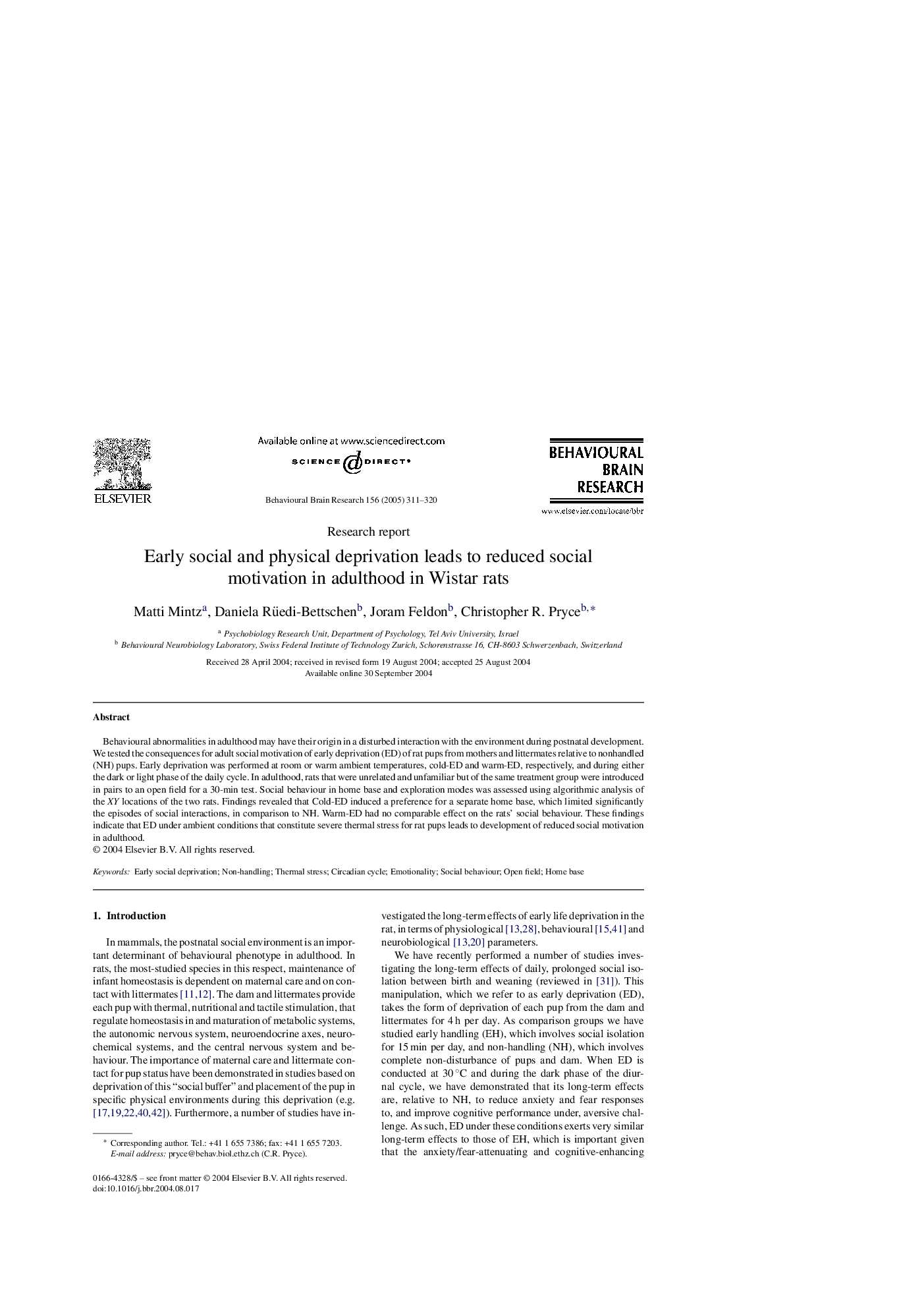| Article ID | Journal | Published Year | Pages | File Type |
|---|---|---|---|---|
| 9406632 | Behavioural Brain Research | 2005 | 10 Pages |
Abstract
Behavioural abnormalities in adulthood may have their origin in a disturbed interaction with the environment during postnatal development. We tested the consequences for adult social motivation of early deprivation (ED) of rat pups from mothers and littermates relative to nonhandled (NH) pups. Early deprivation was performed at room or warm ambient temperatures, cold-ED and warm-ED, respectively, and during either the dark or light phase of the daily cycle. In adulthood, rats that were unrelated and unfamiliar but of the same treatment group were introduced in pairs to an open field for a 30-min test. Social behaviour in home base and exploration modes was assessed using algorithmic analysis of the XY locations of the two rats. Findings revealed that Cold-ED induced a preference for a separate home base, which limited significantly the episodes of social interactions, in comparison to NH. Warm-ED had no comparable effect on the rats' social behaviour. These findings indicate that ED under ambient conditions that constitute severe thermal stress for rat pups leads to development of reduced social motivation in adulthood.
Related Topics
Life Sciences
Neuroscience
Behavioral Neuroscience
Authors
Matti Mintz, Daniela Rüedi-Bettschen, Joram Feldon, Christopher R. Pryce,
